Causes of Low and High White Blood Cell Counts in Dogs
If you recently discovered that your dog has a low or high white blood cell count, you may be feeling scared or confused. What does this mean? Is your dog sick? What can you do to fix it?
The first thing to understand is that white blood cells are used to defend the body against infections and other germs. So if your dog is sick, a vet might order a blood test to measure their white blood cell levels. The results of that test will give more information about your dog’s health, which the vet can use to get a better picture of their condition and make sure they get the right treatment.
In this article, we’ll start by explaining what it means for a dog to have a low or high white blood cell count, then talk about what the most likely causes are, and finally dig into what treatments can help treat your dog’s low or high white blood cell count.

What are White Blood Cells (WBC)?
White blood cells (WBCs) are a type of blood cell that defends the body and fights against infections. Anytime your dog gets sick, has a virus, or gets an infection, their white blood cells come to the rescue.
Normally, a dog will have a WBC value that ranges from about 4.0 to 15.5. If your dog’s WBCs are lower than that, that’s called leukopenia, and it means they have too few white blood cells. If their levels are higher than that, it’s called leukocytosis, and that means your dog has too many.
Both of these conditions are a sign that something isn’t quite right with your dog’s health, so it’s important to follow up on an abnormal WBC. It’s also important to take your dog to the vet for a regular checkup, including a blood test, to make sure they’re staying in a healthy range.
There are actually five different kinds of white blood cells: neutrophils, eosinophils, basophils, lymphocytes, and monocytes. Each type of white blood cell has its own job, and normally, these five types exist in a balance. But if there’s an imbalance in the type of WBC in your dog’s blood, that could signal a problem too.
Most of the time, if your dog has a problem with their WBC levels, it will be regarding their neutrophil or eosinophil levels. These two types of cells are produced in the bone marrow and play a crucial role in fighting against bacteria.
Next, let’s dig in and explore some of the differences between a high white blood cell count in dogs (leukocytosis) and a low white blood cell count in dogs (leukopenia).
What Causes High White Blood Cell Count in Dogs?
As we said earlier, having a white blood cell count (anything over 15.5) is called leukocytosis. If your dog has leukocytosis, it most likely means that their body is fighting off some kind of infection, bacteria, toxin, or other conditions.
Knowing which type(s) of WBCs are elevated can help pinpoint the cause. For example…
- Viral, bacterial, or fungal infections can cause increased neutrophil levels.
- Parasites can cause increased eosinophil levels.
- Chronic diseases and inflammatory conditions can cause increased monocyte levels.
- Allergies can cause increased eosinophil levels.
- Cancers can cause increased lymphocyte or monocyte levels.
- Autoimmune disorders can cause increased neutrophil or lymphocyte levels.
Other potential causes of elevated white blood cell levels in dogs could include Cushing’s disease, certain medications such as corticosteroids, and even stress. These are all clues your vet can use to help narrow down the cause of your pup’s condition.
The bad news is that illnesses and symptoms associated with a high white blood cell count tend to be more severe. The good news is that catching these conditions early, and working with your vet to find and treat the cause, can go a long way in helping your dog to recover successfully.
What Causes Low White Blood Cell Count in Dogs?
We’ve covered the causes of high WBCs. Now, what could cause the opposite—a low white blood cell count in your dog, also known as leukopenia?
- Chronic conditions. It’s important to realize that your dog’s body has a finite ability to manufacture new white blood cells. Very often, when your dog has a chronic condition, their WBC count will initially spike as their body tries to fight off the illness. But over time, their system can get depleted from the constant effort of creating new WBCs—and that can lead to leukopenia.
- Viruses. Viruses—including coronavirus and parvovirus infections—are also known to decrease WBC levels.
- Autoimmune disorders. Some autoimmune conditions can cause your dog’s body to destroy their own white blood cells.
- Medications. Drugs such as trimethoprim, dipyrone, and methimazole have been known to decrease WBC levels.
- Tumors. If a tumor is growing near the marrow, it can interfere with the body’s ability to produce white blood cells.
Treatment Options
Now that you understand the differences between low and high white blood cell counts in dogs, the next thing you’re probably wondering is: how do you treat these conditions?
The best treatment will ultimately depend on your dog’s breed and the underlying illness causing the abnormal WBCs. Since this is not something you should try to figure out on your own, the first step is always to visit your vet, get a complete blood count test done, and work with your vet to identify and treat the underlying cause.
How to Treat High White Blood Cell Count in Dogs
So what should you do if your dog has a high white blood cell count?
Once again, there are many possible causes of this condition—and so there are also many different treatment options. The important thing to keep in mind is that your goal should always be to treat the underlying cause of the elevated WBC. If you do that, the blood count should eventually return to normal. Again, your vet is the best person to ask for advice on the best treatment plan.
How to Treat Low White Blood Cell Count in Dogs
The same idea applies to treating low blood cell count in dogs. Talk to your vet and narrow down the root cause, and follow your vet’s treatment advice to help solve the root issue causing your dog’s low WBC.
Conclusion
If you’re feeling a little overwhelmed by all this information and the potential causes of your dog’s low or high WBC levels, don’t feel bad. Health issues like this can be complicated, which is why we have vets to help make sense of it all and choose a treatment option that makes the most sense for your dog’s situation.
Of course, at the end of the day, you should always go with your vet’s recommendation. But it’s also a good idea to make sure your dog gets adequate nutrition from high-quality food. We’ve heard from many Bully Max customers like Bumpy, whose dog’s health improved significantly when he switched to Bully Max:
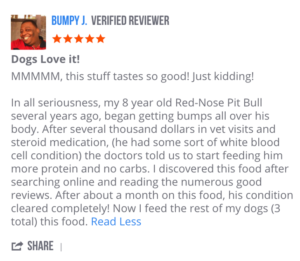
If you want to help keep your dog feeling happy and healthy with a nutritious food that dogs love, check out our High Protein Dog Food. It’s an especially great option when your vet proposes switching to a higher protein diet.
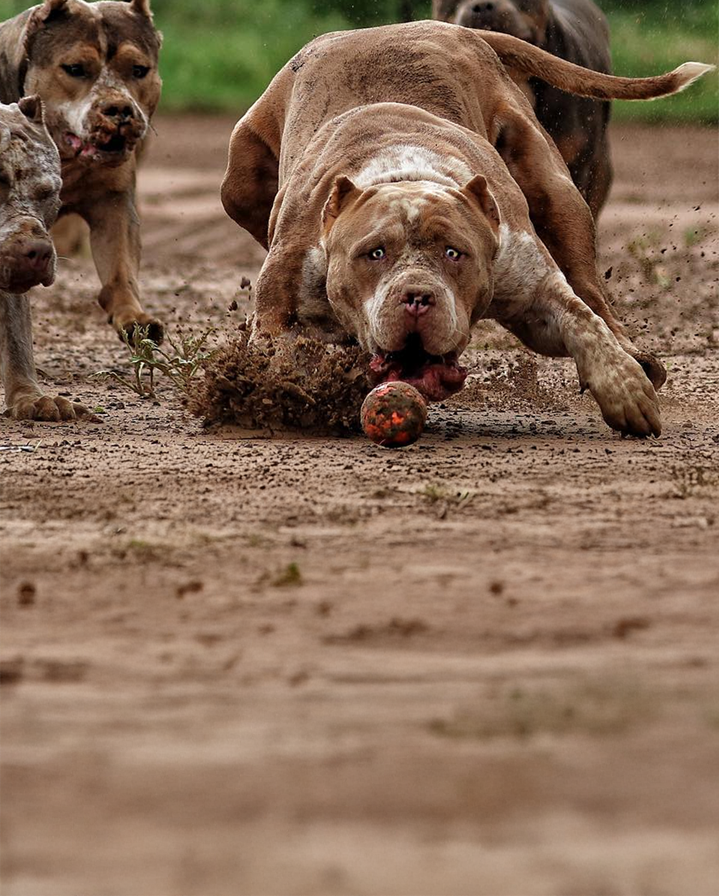

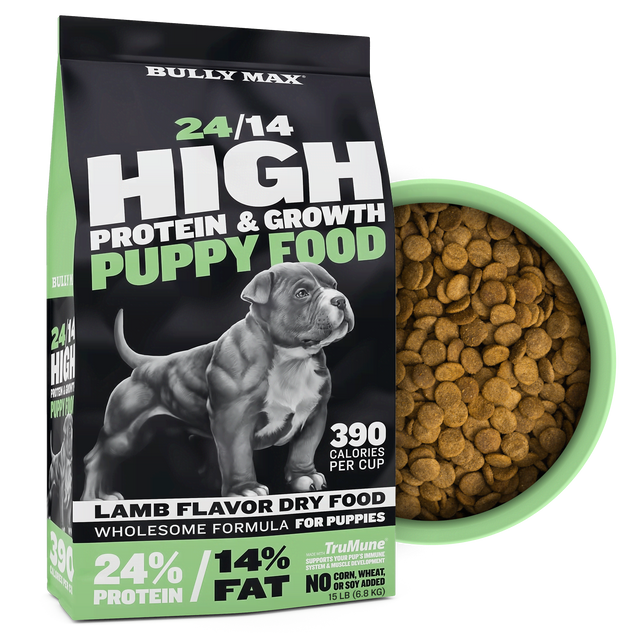
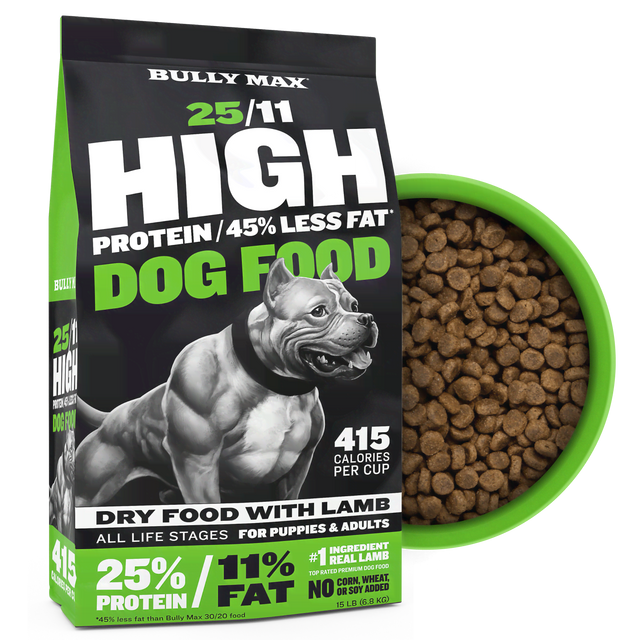
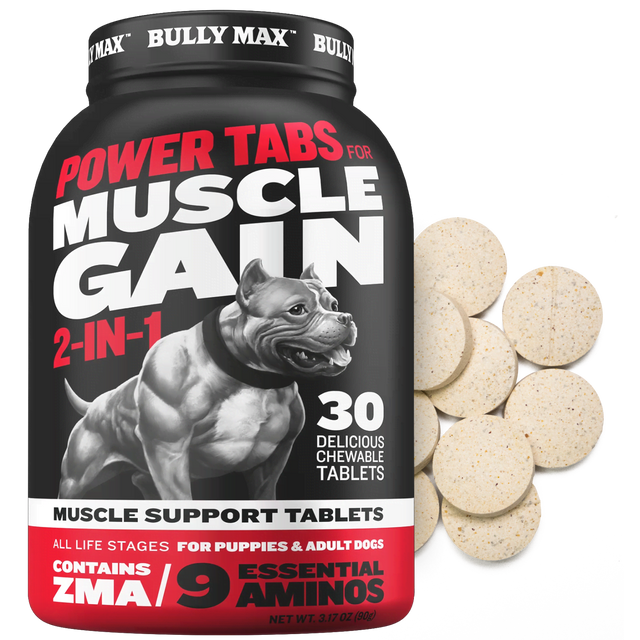




2 comments
My Toy pom who is 1.7 months is having continuous high WBC count He had WBC of 63000. He had attacks of parvo virus and now he is suffering from E coli . He is resistant to max antibiotics. He was treated with suitable antibiotics .
Now his WBC is 27000 which is quite high.
Pl guide
Regards
if your dog was in a vet hospital in beginning of the week and xrays were taken and not noted how sick he was. Then went back two days later with another doctor. Xrays shoed blockage in his stomach ? He since had to have two surgeries . His white blood cells are elevated. Is that a big over site in the first vet that could have prevented. Possibly my dog is close to dying. He ingested a sock. That got caught in his intestine????